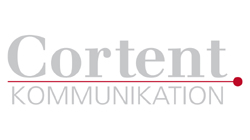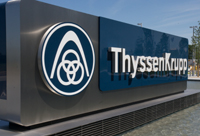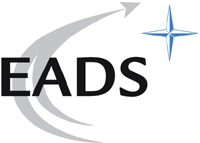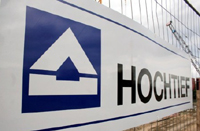VIPsight - March 2013
COMPANIES
Deutsche Bank convenes EGM
 The Extraordinary General Meeting (EGM) convened by the Deutsche Bank must be the first extraordinary meeting of shareholders of the banking house in at least the last three or four decades. The Kirch heirs are bringing shareholders an additional trip to Frankfurt on 11 April. The additional meeting scheduled, which will reportedly take place at the Frankfurt Jahrhunderthalle and mean earlier-reported costs of eight million euros or more, is aimed at confirming, before the regular AGM on 23 May, the legal certainty of the decisions of last year’s AGM that were challenged, initially successfully, by the circles of late media entrepreneur Leo Kirch’s offspring. The bank announced this on 26 February. The Frankfurt Regional Court of first instance stated in December 2012 that at the 2012 AGM one shareholder could not exercise the right to speak, and accordingly upheld the legal challenge. He had been heard only once, but wanted to have spoken a second time. The Deutsche Bank had appealed against this decision. Unlike in the past, when the bank still registered contested AGM resolutions with the Registry Court because it could probably expect to enforce its position through the courts, this way was blocked this time. The plaintiffs in addition filed procedural motions with the Registry Court, thus blocking the registration of the resolutions until further notice. This now means, among other things, that for the financial year 2012 no auditor who could certify the financial statements was effectively appointed. The decisions included discharge to the Board and the election of the present Supervisory Board Chairman Paul Achleitner and of Peter Löscher and Klaus Rüdiger Trützschler to it. The bank will also postpone the release of its annual report to mid-April.
The Extraordinary General Meeting (EGM) convened by the Deutsche Bank must be the first extraordinary meeting of shareholders of the banking house in at least the last three or four decades. The Kirch heirs are bringing shareholders an additional trip to Frankfurt on 11 April. The additional meeting scheduled, which will reportedly take place at the Frankfurt Jahrhunderthalle and mean earlier-reported costs of eight million euros or more, is aimed at confirming, before the regular AGM on 23 May, the legal certainty of the decisions of last year’s AGM that were challenged, initially successfully, by the circles of late media entrepreneur Leo Kirch’s offspring. The bank announced this on 26 February. The Frankfurt Regional Court of first instance stated in December 2012 that at the 2012 AGM one shareholder could not exercise the right to speak, and accordingly upheld the legal challenge. He had been heard only once, but wanted to have spoken a second time. The Deutsche Bank had appealed against this decision. Unlike in the past, when the bank still registered contested AGM resolutions with the Registry Court because it could probably expect to enforce its position through the courts, this way was blocked this time. The plaintiffs in addition filed procedural motions with the Registry Court, thus blocking the registration of the resolutions until further notice. This now means, among other things, that for the financial year 2012 no auditor who could certify the financial statements was effectively appointed. The decisions included discharge to the Board and the election of the present Supervisory Board Chairman Paul Achleitner and of Peter Löscher and Klaus Rüdiger Trützschler to it. The bank will also postpone the release of its annual report to mid-April.
GESCO: order books are bulging
 Good news from SDax company Gesco AG: The 17 subsidiaries of the medium-sized holding company in Wuppertal are sitting on bulging order books with a backlog of about 200 million euros. The SME subsidiaries are active mainly in machine tools, mechanical engineering and plastics technology.
Good news from SDax company Gesco AG: The 17 subsidiaries of the medium-sized holding company in Wuppertal are sitting on bulging order books with a backlog of about 200 million euros. The SME subsidiaries are active mainly in machine tools, mechanical engineering and plastics technology.
Gesco’s business model has been successful: Since 2002, the holding company increased its net income from 2.9 to 20.5 million euros. Gesco AG acquires solid family companies whose managers cannot find a successor. The subsidiaries remain operationally independent after the acquisition; the new CEOs are brought into the company.
Hess: Four months from Prime Standard to bankruptcy
The lamp manufacturer Hess is insolvent after only four months of listing. Now prosecutors are investigating on suspicion of investment fraud. Landesbank Baden-Württemberg (LBBW), which had accompanied the IPO last year, has made a complaint against the company.
Yet the Baden-Württemberg family SME, with its 65-year history, was at the time of the IPO in October 2012 regarded as a solid company. The listing in Prime Standard, the stock-market segment with the highest level of transparency, also spoke against a speculative value.
The approximately 360-strong company is suspected of having made false statements in the prospectus and of having reported too high turnover for the year 2011. The scandal went public when after internal investigations the Hess Supervisory Board terminated the contracts of two board members. Reason: suspicion that with the knowledge of the Board there had been violations of accounting rules.
Neither the auditors and tax consultants nor securities regulators nor the lead underwriter of the IPO, LBBW, noticed the inconsistencies before the IPO.
The German Mittelstand

Cortent article for VIPsight.eu
“The Mittelstand has learned from the crisis”
The Mittelstand (Germany’s SMEs) has learned the right lessons from the financial crisis and the subsequent “credit crunch”. In recent years, companies have steadily improved their capital base. According to a recent analysis by the German Savings Bank Association, capital ratios at companies with fewer than 500 employees have increased from 11.5 per cent in 2007 to 18.6 per cent in 2010. In 2011, the last evaluated year, the figures were around 20.7 per cent. After the credit crunch repeatedly haunted the media as a spectre, the Mittelstand has turned the tables. Now the banks are competing for the favour of healthy companies. The facts that the amount of interest is based on the borrower's creditworthiness and interest rates are currently low mean that borrowing costs are also lower than ever.
One need only briefly recall that less than five years ago, in September 2008, the hitherto merely smouldering financial crisis burst into a conflagration with the collapse of the Lehman Brothers bank. Worldwide, banks turned off the money supply and refused businesses badly-needed investment loans - with dramatic consequences for the economy. Even among themselves the banks no longer wanted to grant loans. Even after the worst was over, in this country the willingness to supply the German Mittelstand with loans initially fell short of the demand. For because of their generally rather low equity base, the Mittelstand companies were considered too risky. Tempi passati.
The new strength of the Mittelstand is now being felt by the promoters of SME funds that want to invest their money in this specific segment. The capital provided by the Deutsche Bank for a Mittelstand fund was not fully utilized. Nor were the scheme issued jointly by Commerzbank and the Bank for Reconstruction (KfW) nor the DBAG (Deutsche Beteiligungs AG) fund able to invest their money. The Mittelstand is no longer dependent on it.
Buhlmann's Corner
The people rise up, but who will give them the tools?
 Two thirds of Swiss voters want to bar the expropriation of shareholders by unspeakable executive salaries - but just how should the bar look, and will it have an impact on the nation as an industrial or banking location?
Two thirds of Swiss voters want to bar the expropriation of shareholders by unspeakable executive salaries - but just how should the bar look, and will it have an impact on the nation as an industrial or banking location?
A quarter of Italian voters gave a comedian political power, and no one who wants to dine with the Italian President Napolitano or be a friend to the Italians dare call him that - but just why does the grotesque face in the mirror not please?
A tenth of the Austrian voters (so far only in Lower Austria and Carinthia) vote for slogans like “let us use our money for our senior citizens instead of for banks, speculators and bankrupt states in the South” that Frank Stronach, Magna’s 70-year- old founder and emigration returnee, suggests to them - just Pirates, and all with copied PhDs (in Germany (still) part of their names)?
When the outcome of Thomas Minder’s rip-off initiative was announced, the Financial Times (Europe, 4 March 2013) headlined “Referendum follows Europe-wide move” - even though it was only about Switzerland. The Handelsblatt had a problem with the simplistic notion and banned it from the headlines. On 25 February their headline was “The rip-off,” a report on a spectacular confession from among the so-called Predatory Shareholders in connection with the civil dispute between them and a probably just as predatory law firm in Munich.
Yet Germany has after all offered shining examples. A German top executive waived the €20 million (or more) salary “due to him” (who, pray, irresponsibly settled that?) for 360 days (or less) without then selling one more Golf. Should he get a medal, or just compassionate understanding because he must now be starving, getting along on only about 14 million?
The rounding error is the average salary of an assembly-line worker or one at a supplier, or at 220 days and 10 hours, an hourly salary of the list price of a Volkswagen up! (a city car) - with no discount, bonus or second sunshade. Whom should the people hit at here - the up! purchase price?
How many tomatoes must mutate into ketchup is hard to calculate – but what the 64-year-old Heinz boss William Johnson gets as a golden parachute after 15 years of service, estimated in The Washington Post at USD 212.7 million, represents approximately 6.000 ketchup bottles additionally for each of his working hours, as a golden goodbye.
When an outgoing executive “parks” the amounts that hide his severance pay for two years - as was rumoured in the Novartis case - then I call that robbery and fraud, and accuse not so much the accountant as the auditor and the supervisory-board members. If they previously “knew nothing”, then they now have to clarify that instead of sleeping on the pro rata reserves. But will that be enough?
If random majorities in general meetings are a bigger issue than voting majorities, there is indeed something a bit sick in the system. If everyone just waits for the Others to pay attention and explain (free-rider behaviour, or in German running-board rider) then it remains as it is today, and the people get stood up. Why do pensioners not ask their (own) Pension Fund: what are you doing with my pension capital against cheaters? Why does no one asks his church how, with the parked investment capital, ethics and decency can get a hearing?
There are organizations all over the world like PRI (Principles of Responsible Investment - born out of the UN, so UNPRI) and ICGN (Institutional Corporate Governance Network), which last week met in the premises of the Milan Stock Exchange. They meet as old friends, repeating once again “here and now” what has already been said elsewhere and calling hello and goodbye to each other, and the caravan moves on - but does not go past any general meeting, still less stop there.
ICGN now claims to pool 900 investors with 29 trillion USD; PRI is quoted at 25 trillion USD of “assets under management”. Although there is undoubtedly double counting between the organizations, where are these assets as responsible votes for corporate governance and ESG (environmental, social and ‘corporate’ governance) in voting at general meetings - at ThyssenKrupp in 2013 on the discharge issue, at MAN (with half attendance in 2010 at the supervisory-board elections) or Novartis, with only 20% No-Go to the compensation? Must we wait for Monte dei Paschi di Siena or jump out the window?
Yes, peoples rise up and many citizens cry out – but where is the filter funnel, the magnifying glass? Because the hammer (and chisel) are ready, and no one really needs sickles (or lawnmowers).
ACTIONS CORNER
 Christian Strenger is taking action against the discharge of Gerhard Cromme at the recent ThyssenKrupp AGM. The multiple supervisory-board member (DWS, Evonik, Fraport, TUI) had on 21 February filed a legal challenge at the Dortmund District Court against the discharge of Gerhard Cromme. The lawsuit by the member of the Government Commission on the German Corporate Governance Code is based in content on paragraph 136 of the German Companies Act, according to which no one should exercise the right to vote, for himself or for another, when a decision on his discharge is to be taken. Thus, it is doubtful that the Alfried Krupp von Bohlen and Halbach Foundation was allowed to participate in the discharge vote, he said. The chairman of the Supervisory Board should be regarded as a representative of the Foundation and also the designated successor of Bertold Beitz as Chairman of the Foundation. But had the Foundation abstained at the discharge vote, Cromme would also not have been given discharge, speculates Strenger.
Christian Strenger is taking action against the discharge of Gerhard Cromme at the recent ThyssenKrupp AGM. The multiple supervisory-board member (DWS, Evonik, Fraport, TUI) had on 21 February filed a legal challenge at the Dortmund District Court against the discharge of Gerhard Cromme. The lawsuit by the member of the Government Commission on the German Corporate Governance Code is based in content on paragraph 136 of the German Companies Act, according to which no one should exercise the right to vote, for himself or for another, when a decision on his discharge is to be taken. Thus, it is doubtful that the Alfried Krupp von Bohlen and Halbach Foundation was allowed to participate in the discharge vote, he said. The chairman of the Supervisory Board should be regarded as a representative of the Foundation and also the designated successor of Bertold Beitz as Chairman of the Foundation. But had the Foundation abstained at the discharge vote, Cromme would also not have been given discharge, speculates Strenger.
AGM Dates
| Company | Event | Date | Time | Place | Address | Published on |
| TecDAX | 22/01/2013 | |||||
| Carl Zeiss Meditec AG | ord. AGM | 05/03/2013 | 10:00 | 99423 Weimar | UNESCO-Platz 1, im congress centrum neue weimarhalle | |
| The Agenda for the ordinary AGM of Carl Zeiss Meditec AG starts with the usual items, like presentation of annual accounts and discharge to the company bodies. Carl Zeiss Meditec AG earned balance-sheet profits of €63.85m last business year. Of the profits, €32.52m is to be paid out as dividend and €31.33m carried forward to a new account. | ||||||
Politics
Debate on limiting bankers' bonuses
 The EU Parliament and the Irish Presidency of the EU have failed when trying to agree on rules for the limitation of variable performance bonuses for bank managers. Still on 19 February, therefore, the final negotiations on the EU Capital Requirements Directive (CRD IV), with which the Basel III requirements are translated into European law, had be postponed till 27 February. CRD IV is the core of Europe’s policy response to the banking and debt crisis. The current debate in the EU revolves around the question of whether in the context of the ongoing revision of capital requirements for banks, capping bank managers’ bonuses by statute should be introduced. There is still controversy, however, as to the systemic risk buffer, and in connection therewith the flexibility with which national authorities may raise the capital requirements of domestic banks. In December 2012, EU Member States and Parliament agreed that the extra payments must not exceed bankers’ annual fixed salary. The Parliament, which must decide the revision together with the Council (Member States), insists on adding this basic rule. Should two thirds of the shareholders of a financial institution agree, the bonus could also rise to twice the basic salary. Ireland and especially the UK recently called the scheme into question again, however. Critics have also warned that Europe's banks could employ their top managers at subsidiaries in countries outside the EU in order to circumvent the restrictions. The controversial cap is to complement the first statutory provisions relating to the remuneration of senior management and other employees with influence on the risk position of a bank or investment firm, which were inserted at the last revision of the capital requirements in 2010 and are in force since 1 January 2011. To date the EU goes less far with remuneration for managers from the rest of the economy.
The EU Parliament and the Irish Presidency of the EU have failed when trying to agree on rules for the limitation of variable performance bonuses for bank managers. Still on 19 February, therefore, the final negotiations on the EU Capital Requirements Directive (CRD IV), with which the Basel III requirements are translated into European law, had be postponed till 27 February. CRD IV is the core of Europe’s policy response to the banking and debt crisis. The current debate in the EU revolves around the question of whether in the context of the ongoing revision of capital requirements for banks, capping bank managers’ bonuses by statute should be introduced. There is still controversy, however, as to the systemic risk buffer, and in connection therewith the flexibility with which national authorities may raise the capital requirements of domestic banks. In December 2012, EU Member States and Parliament agreed that the extra payments must not exceed bankers’ annual fixed salary. The Parliament, which must decide the revision together with the Council (Member States), insists on adding this basic rule. Should two thirds of the shareholders of a financial institution agree, the bonus could also rise to twice the basic salary. Ireland and especially the UK recently called the scheme into question again, however. Critics have also warned that Europe's banks could employ their top managers at subsidiaries in countries outside the EU in order to circumvent the restrictions. The controversial cap is to complement the first statutory provisions relating to the remuneration of senior management and other employees with influence on the risk position of a bank or investment firm, which were inserted at the last revision of the capital requirements in 2010 and are in force since 1 January 2011. To date the EU goes less far with remuneration for managers from the rest of the economy.
People
 Dr. Gerhard Cromme (70) declared he would step down as Chairman of the Supervisory Board of ThyssenKrupp AG effective 31 March 2013. Concurrently he has requested the Alfried Krupp von Bohlen und Halbach Foundation to revoke his delegation onto the Supervisory Board of ThyssenKrupp, also effective 31 March 2013 - he would also vacate his functions at the 25% anchor shareholder of ThyssenKrupp on the same date. The Foundation’s right of secondment to the company’s supervisory board was fought vigorously in a motion for a resolution at the 2007 Annual General Meeting by VIP, rallying 24.9% of the AGM votes behind it. Gerhard Cromme is to be thanked for getting the issue of German Corporate Governance discussed even beyond the borders.
Dr. Gerhard Cromme (70) declared he would step down as Chairman of the Supervisory Board of ThyssenKrupp AG effective 31 March 2013. Concurrently he has requested the Alfried Krupp von Bohlen und Halbach Foundation to revoke his delegation onto the Supervisory Board of ThyssenKrupp, also effective 31 March 2013 - he would also vacate his functions at the 25% anchor shareholder of ThyssenKrupp on the same date. The Foundation’s right of secondment to the company’s supervisory board was fought vigorously in a motion for a resolution at the 2007 Annual General Meeting by VIP, rallying 24.9% of the AGM votes behind it. Gerhard Cromme is to be thanked for getting the issue of German Corporate Governance discussed even beyond the borders.
The fact that the company’s Supervisory Board announced no successor at this time shows that the real leadership does not come from the institutions of the company.
With immediate effect, Holger Jürgensen and Karl-Hermann Kuklies have resigned from their positions, AIXTRON announced on 30 January. Reasons were not given. For personal reasons and by mutual agreement, Paul Hyland also left the semiconductor specialist, on 28 February. On 18 February the Supervisory Board had appointed Martin Goetzeler as his successor; he began work on 1 March.
 Andrea Jung is to be elected as shareholder representative on the Supervisory Board at the Annual General Meeting of Daimler on 10 April in Berlin. If appointed, the former Avon boss would be the third woman on the car manufacturer’s top body. Born in 1958, she has since 2008 been an Apple board member, and on the General Electric board since 1998. She is to follow Lynton R. Wilson, who will retire from the Supervisory Board on age grounds.
Andrea Jung is to be elected as shareholder representative on the Supervisory Board at the Annual General Meeting of Daimler on 10 April in Berlin. If appointed, the former Avon boss would be the third woman on the car manufacturer’s top body. Born in 1958, she has since 2008 been an Apple board member, and on the General Electric board since 1998. She is to follow Lynton R. Wilson, who will retire from the Supervisory Board on age grounds.
E.ON has headhunted Leonhard Birnbaum from RWE. The former Chief Strategy Officer of the Essen competitors is to succeed Klaus-Dieter Maubach, whose departure had been speculated about for some time. Moreover, Regine Stachelhaus also plans to give up her post. The first woman on the Board of the Düsseldorf energy group announced her departure for midyear. Mike Winkel is to take over her duties.
 Denis Ranque could chair the Administrative Board at European Aeronautic Defence and Space Company (EADS). The Nominating Committee of the European aerospace and defence group has recommended the ex Thales chief for the post, it was said in Paris. The government in Berlin is said to basically agree with the name. The French government had recently sent strong signals it would prefer to see Anne Lauvergeon at the top. The following persons have been proposed for election to the future eleven-member Board of Directors by the Extraordinary General Meeting of the Group on 27 March: Thomas Enders, Anne Lauvergeon, Manfred Bischoff, Hans-Peter Keitel, and Ralph D. Crosby. Also proposed are Michel Pébéreau, Lakshmi N. Mittal, John Parker, Hermann-Josef Lamberti and Josep Piqué i Camps.
Denis Ranque could chair the Administrative Board at European Aeronautic Defence and Space Company (EADS). The Nominating Committee of the European aerospace and defence group has recommended the ex Thales chief for the post, it was said in Paris. The government in Berlin is said to basically agree with the name. The French government had recently sent strong signals it would prefer to see Anne Lauvergeon at the top. The following persons have been proposed for election to the future eleven-member Board of Directors by the Extraordinary General Meeting of the Group on 27 March: Thomas Enders, Anne Lauvergeon, Manfred Bischoff, Hans-Peter Keitel, and Ralph D. Crosby. Also proposed are Michel Pébéreau, Lakshmi N. Mittal, John Parker, Hermann-Josef Lamberti and Josep Piqué i Camps.
In October 2014 Gerhard Weber will let his executive contract expire and move directly to the Supervisory Board of Gerry Weber International, the company announced on 27 February. A “cooling-off period”, as now legally required for listed companies, does not come into question for the 71-year-old co-founder, eponym and for 40 years chairman, because of age alone. Arnd Buchardt is to rise to the fashion group’s board. The former managing director of the core brand Gerry Weber will be appointed to the Board, along with Ralf Weber, on 1 August. Doris Strätker, to date in charge of design and marketing, did not extend her contract, which expires in July, for personal reasons.
 For Manfred Wennemer and Christine Wolff, leavng at the end of December 2012 and the end of January respectively, Michael Frenzel and Jan Martin Wicke will now move to the Supervisory Board of HOCHTIEF. A request by the Board of the construction company to that effect has been filed with the Essen district court. Both . appointments are to be confirmed by election at the AGM on 7 May. Frenzel was from January 1994 to February 2013 Chairman of the Board of TUI. Under his leadership, the former Preussag became the leading tour company in Europe. At TUI, Frenzel gathered shareholders and board members from the Spanish hotel and real-estate industry - the majority shareholder of HOCHTIEF is the Spanish construction company ACS, after a 2010/2011 takeover battle. Wennemer had led the Supervisory Board of the construction giant for one and a half years. He had vacated his post in the wake of the new CEO appointment in late 2012. Wolff had been on the Supervisory Board only since July 2012.
For Manfred Wennemer and Christine Wolff, leavng at the end of December 2012 and the end of January respectively, Michael Frenzel and Jan Martin Wicke will now move to the Supervisory Board of HOCHTIEF. A request by the Board of the construction company to that effect has been filed with the Essen district court. Both . appointments are to be confirmed by election at the AGM on 7 May. Frenzel was from January 1994 to February 2013 Chairman of the Board of TUI. Under his leadership, the former Preussag became the leading tour company in Europe. At TUI, Frenzel gathered shareholders and board members from the Spanish hotel and real-estate industry - the majority shareholder of HOCHTIEF is the Spanish construction company ACS, after a 2010/2011 takeover battle. Wennemer had led the Supervisory Board of the construction giant for one and a half years. He had vacated his post in the wake of the new CEO appointment in late 2012. Wolff had been on the Supervisory Board only since July 2012.
Frank Lutz has agreed with the Supervisory Board about the consensual cancellation of his contract with immediate effect, MAN announced on 18 February. The manager was previously Chief Financial Officer for the Group. Lutz obviously did not want to wait for the control and profit transfer agreement by the Volkswagen group to enter into force. His responsibilities will be taken over by Pachta-Reyhofen.
In the second quarter Pieter Haas will move from Media-Saturn Holding (MSH) to METRO and there take charge of the newly created “Media-Saturn & Business Innovation” department, said the trade group. The focus will be placed on the further expansion of multi-channel distribution. With this headhunting METRO was depriving MSH of operational know-how and weakening the company, said co-partner Kellerhals.
 Leonhard Birnbaum is to leave RWE at the end of September and switch to E.ON. The 46-year-old had waived the offered renewal of his contract. RWE announced on 26 February that Birnbaum’s post would not be reoccupied. Its tasks are to be distributed to the remaining four board departments and the Board, given the austerity measures throughout the Group, permanently reduced to four members. Moreover, there are to be two personnel changes in the energy group’s Supervisory Board. Hans-Peter Keitel and Werner Brandt are to replace Carl-Ludwig von Boehm-Bezing and Paul Achleitner, who are resigning their positions with effect from 18 April. Former Deutsche Bank Board member Boehm-Bezing has belonged to the supervisory board since 1997, Achleitner since 2000.
Leonhard Birnbaum is to leave RWE at the end of September and switch to E.ON. The 46-year-old had waived the offered renewal of his contract. RWE announced on 26 February that Birnbaum’s post would not be reoccupied. Its tasks are to be distributed to the remaining four board departments and the Board, given the austerity measures throughout the Group, permanently reduced to four members. Moreover, there are to be two personnel changes in the energy group’s Supervisory Board. Hans-Peter Keitel and Werner Brandt are to replace Carl-Ludwig von Boehm-Bezing and Paul Achleitner, who are resigning their positions with effect from 18 April. Former Deutsche Bank Board member Boehm-Bezing has belonged to the supervisory board since 1997, Achleitner since 2000.
Susanne Klatten will succeed Max Dietrich Kley in the chair of the SGL Carbon Supervisory Board following the Annual Meeting at the end of April. The Quandt heiress is already deputy head of the carbon fibre manufacturer’s supervisory board. She is also a major shareholder, holding about 28 per cent of SGL through Skion. Because Kley is leaving the post for reasons of age, there has been speculation for some time about who would head the body in the future.
 The red-green government change in Lower Saxony has also led to a shake-up in the two posts at Volkswagen the state is entitled to. Thus, Stephan Weil and Olaf Lies will take the two freed up by David McAllister and Jörg Bode. The Cabinet agreed to their appointment on 19 February at its first session, the State Chancellery announced. That the state should exercise an important influence at Wolfsburg is entirely uncontroversial in Lower Saxony across all party lines. The state of Lower Saxony, which owns just under 20 per cent of VW shares, holds two seats on the supervisory board. It is among the largest shareholders of the company, alongside the Porsche and Piëch families and the emirate of Qatar, which is also represented by two members of the supervisory body.
The red-green government change in Lower Saxony has also led to a shake-up in the two posts at Volkswagen the state is entitled to. Thus, Stephan Weil and Olaf Lies will take the two freed up by David McAllister and Jörg Bode. The Cabinet agreed to their appointment on 19 February at its first session, the State Chancellery announced. That the state should exercise an important influence at Wolfsburg is entirely uncontroversial in Lower Saxony across all party lines. The state of Lower Saxony, which owns just under 20 per cent of VW shares, holds two seats on the supervisory board. It is among the largest shareholders of the company, alongside the Porsche and Piëch families and the emirate of Qatar, which is also represented by two members of the supervisory body.
Sunways: from three to two
The General Standard listed solar manufacturer Sunways has reduced its board from three members to two. Jörg von Strom, responsible for purchasing, production and supply chain, resigned from his Board post. As a senior manager, he retains his existing responsibilities within the Company. Still on the Board are Chief Executive Officer Mario Zen and marketing and sales officer Jürgen Frei.
Bechtle: continuation of the success formula
At TecDax value Bechtle everything is running smoothly. The IT service provider from Neckarsulm in late January presented a strong balance-sheet for the fourth quarter of 2012. Shortly thereafter, the Company extended the contract of CEO Thomas Olemotz until 2017. He has been guiding the fortunes of the company since 2008.
Aixtron: ups and downs in the boardroom
In January two Supervisory Board members resigned at TecDax company Aixtron; now CEO Paul Hyland has also resigned "by mutual agreement". His successor since March is Martin Goetzeler, who at the beginning of 2012 was still responsible as top manager for daily operations at Siemens subsidiary Osram. As a chip equipment manufacturer, Aixtron mainly supplies the LED industry, and Goetzeler is considered an expert in the LED and lighting business. He should lead the beleaguered SME back on track.
Campus
Businesses should limit managers' salaries - Kley throws in the towel
 The Government Commission for good corporate governance (German Corporate Governance Code) around Klaus-Peter Müller on 5 February addressed the controversial issue of manager salaries. When Chairman Müller, as always at the beginning of the year, reported on the planned changes to the Corporate Governance Code, he ventured for the first time also on the limits on managers' salaries hotly contested by business. Although Commissioner Manfred Gentz stressed no one wanted to explicitly intervene in company compensation systems of or even lay down specific guidelines for the appropriateness of remuneration, the Commission's proposals to improve the transparency and accountability of executive remuneration do represent definite changes in content. Specifically, it proposes to recommend that individual compensation should be capped in aggregate amount and also in individual compensation components. The supervisory boards that set directors' salaries are, according to the will of the Commission, to ensure in future that board members’ salaries are not too far from those of the second tier nor from those of the total workforce. The systemic and individual limits shall, however, continue to be defined for the specific company by the Supervisory Board. The new compensation recommendations of the German Corporate Governance Code Commission have, finally, led to personnel changes in the body. Max Dietrich Kley will no longer endorse this line and has resigned from his position on the Code Commission. The longtime BASF executive and supervisory-board member felt increasingly in a minority position, he claims. At the legislative level, and especially in Brussels, so much is currently in motion regarding executive pay that Kley considers it wrong to expand the Code at such a time.
The Government Commission for good corporate governance (German Corporate Governance Code) around Klaus-Peter Müller on 5 February addressed the controversial issue of manager salaries. When Chairman Müller, as always at the beginning of the year, reported on the planned changes to the Corporate Governance Code, he ventured for the first time also on the limits on managers' salaries hotly contested by business. Although Commissioner Manfred Gentz stressed no one wanted to explicitly intervene in company compensation systems of or even lay down specific guidelines for the appropriateness of remuneration, the Commission's proposals to improve the transparency and accountability of executive remuneration do represent definite changes in content. Specifically, it proposes to recommend that individual compensation should be capped in aggregate amount and also in individual compensation components. The supervisory boards that set directors' salaries are, according to the will of the Commission, to ensure in future that board members’ salaries are not too far from those of the second tier nor from those of the total workforce. The systemic and individual limits shall, however, continue to be defined for the specific company by the Supervisory Board. The new compensation recommendations of the German Corporate Governance Code Commission have, finally, led to personnel changes in the body. Max Dietrich Kley will no longer endorse this line and has resigned from his position on the Code Commission. The longtime BASF executive and supervisory-board member felt increasingly in a minority position, he claims. At the legislative level, and especially in Brussels, so much is currently in motion regarding executive pay that Kley considers it wrong to expand the Code at such a time.
Capital News
SME Bonds: use with caution
Since at the moment the IPO market in Germany is extremely difficult for SMEs, many companies put out bonds. Especially private investors are lured by high interest rates. But these items are not free of risk. Cf. Processing, Siag Schaaf, BKN Biostrom, Solarwatt and Centrosolar: Just lately, some investors have been affected by defaults on German SME loans.
Although these are exceptions, as most medium-sized businesses benefit from an enormous confidence, most of the ratings of these companies indicate speculative level. Since corporate bonds are not protected by additional security, the investor bears the risk of default himself.
Director's Dealings
| Company | Person | Function | Buy / Sell | Total value in Euro | Number of shares | Date |
| Siemens AG | Busch, Dr. Roland Emil | VR | V | 2.636,70 | 33 | 01.02.2013 |
| Siemens AG | Kaeser, Joe | VR | V | 64.878,80 | 812 | 01.02.2013 |
| Siemens AG | Kux, Barbara | VR | V | 26.446,90 | 331 | 01.02.2013 |
| Siemens AG | Requardt, Prof. Dr. Hermann | VR | V | 38.911,30 | 487 | 01.02.2013 |
| Siemens AG | Russwurm, Siegfried | VR | V | 21.732,80 | 272 | 01.02.2013 |
| HUGO BOSS AG | Simina, Antonio | AR | V | 35.592,00 | 400 | 13.02.2013 |
| Dürr AG | Heinz Dürr GmbH | V | 1.720.398,24 | 20658 | 20.02.2013 | |
| Dürr AG | Heinz Dürr GmbH | V | 4.845.000,00 | 60000 | 26.02.2013 | |
| Dürr AG | Heinz Dürr GmbH | V | 5.749.745,44 | 70601 | 25.02.2013 | |
| Dürr AG | Heinz Dürr GmbH | V | 2.733.439,66 | 32842 | 21.02.2013 | |
| Dürr AG | Heinz Dürr GmbH | V | 727.048,30 | 8899 | 24.02.2013 | |
| KRONES AG | Frischholz, Lieselotte | V | 100.100,00 | 2000 | 19.02.2013 | |
| ProSiebenSat.1 Media AG | Albert, Conrad | VR | V | 105.628,60 | 4180 | 31.01.2013 |
| ProSiebenSat.1 Media AG | Ebeling, Thomas | VR-Chef | V | 7.536.960,00 | 300000 | 30.01.2013 |
| BB Biotech AG | Koller, Daniel | VR | K | 19.370,00 | 200 | 21.02.2013 |
| Beiersdorf AG | Heidenreich, Ellen-Brigitta | V | 6.796.661,81 | 103185 | 15.02.2013 | |
| Wacker Chemie AG | Eisenacker, Anton | AR | K | 16.134,00 | 300 | 04.02.2013 |
| GERRY WEBER INTERNATIONAL AG | R + U Weber GmbH & Co. KG | K | 291.520,00 | 8000 | 06.02.2013 | |
| Gerresheimer AG | Beaujean, Rainer | VR | K | 211.550,00 | 5000 | 15.02.2013 |
| QIAGEN N.V. | Brandt, Werner | AR | V | 8718,42 | 540 | 27.02.2013 |
| QIAGEN N.V. | Brandt, Werner | AR | A1 | 0,00 | 1770 | 26.02.2013 |
| QIAGEN N.V. | Colpan, Metin | AR | A1 | 0,00 | 1770 | 26.02.2013 |
| QIAGEN N.V. | Colpan, Metin | AR | V | 15257,23 | 945 | 27.02.2013 |
| QIAGEN N.V. | Hornnaess, Erik | AR | A1 | 0,00 | 1770 | 26.02.2013 |
| QIAGEN N.V. | Hornnaess, Erik | AR | V | 15257,23 | 945 | 27.02.2013 |
| QIAGEN N.V. | Karobath, Manfred | AR | A1 | 0,00 | 1770 | 26.02.2013 |
| QIAGEN N.V. | Karobath, Manfred | AR | V | 15257,23 | 945 | 27.02.2013 |
| QIAGEN N.V. | Riesner, Detlev | AR-Chef | V | 15257,23 | 945 | 27.02.2013 |
| QIAGEN N.V. | Riesner, Detlev | AR-Chef | A1 | 0,00 | 1770 | 26.02.2013 |
| QIAGEN N.V. | Schatz, Peer | VR-Chef | V | 1041325,77 | 64530 | 27.02.2013 |
| QIAGEN N.V. | Schatz, Peer | VR-Chef | A1 | 0,00 | 135788 | 26.02.2013 |
| QIAGEN N.V. | von Prondzynski, Heinz Norbert Ferdinand Maria genannt Heino | AR | V | 8718,42 | 540 | 27.02.2013 |
| QIAGEN N.V. | von Prondzynski, Heinz Norbert Ferdinand Maria genannt Heino | AR | A1 | 0,00 | 1770 | 26.02.2013 |
| DEUTSCHE BANK AG | Brand, Jacques | V | 166.462,64 | 3634 | 21.02.2013 | |
| DEUTSCHE BANK AG | Chada, Gunit | V | 1.119.587,90 | 31908 | 22.02.2013 | |
| DEUTSCHE BANK AG | Cloete, Alan | V | 2.278.322,77 | 64151 | 25.02.2013 | |
| DEUTSCHE BANK AG | Colin, Fan | V | 1.843.763,68 | 48304 | 04.02.2013 | |
| DEUTSCHE BANK AG | Grassie , Colin | V | 345.735,00 | 9850 | 22.02.2013 | |
| DEUTSCHE BANK AG | Rankin, Robert | V | 3.626.975,50 | 97000 | 05.02.2013 | |
| GEA Group AG | Kämpfert, Michael | AR | V | 16.577,61 | 605 | 22.02.2013 |
| HeidelbergCement AG | Scheifele, Dr. Bernd | VR-Chef | V | 10.500,00 | 6000 | 14.02.2013 |
VIPsight Shareholders
in February
VIPsight Shareholder ID <click here>
M & A
Grammer swallows headrest manufacturer Nectec
The automotive supplier Grammer has successfully completed the acquisition of Czech headrest manufacturer Nectec. The SDax-listed specialist in automobile interiors thus strengthens its Europe-wide position in the headrests segment and its growth opportunities in the premium segment.Grammer wants to maintain and expand the Nectec location. Grammer AG employs around 9,000 people in 18 countries worldwide.
Schuler takeover approved
The metal-forming specialist and former SDax value Schuler now belongs in large majority to the Austrian engineering group Andritz. After all regulatory approvals, the acquisition is now completed and Andritz holds more than 90 percent of Schuler's shares, it claims.
Already last year, the founding family Schuler-Voith had after 173 years relinquished their control over the company and sold about 39 percent of their shares to the Graz company, which then made the rest of Schuler's shareholders a voluntary tender offer. According to Andritz its majority stake in the Swabian company represents a long-term investment.















